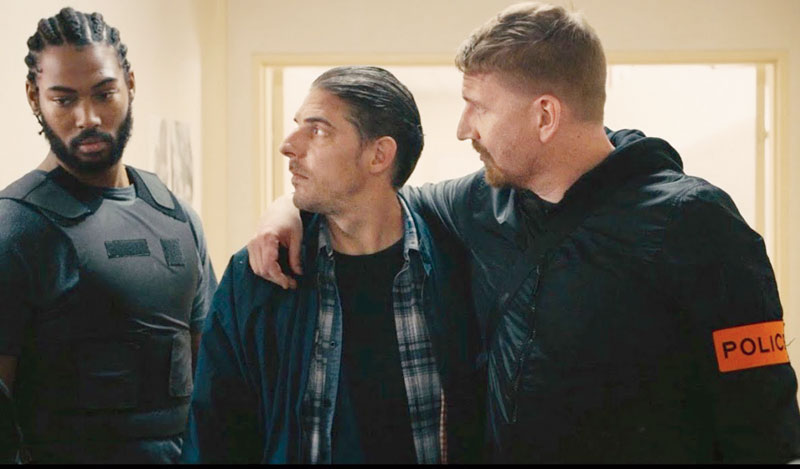Les Miserables opens with a sequence in Paris as pointed as it is exuberant. In dozens of quick cuts, scads of teens and young adults hop metro turnstiles and crowd into bistros, packing alleyways and streets. They’re mostly people of colour, and they’re watching their country’s football team win the 2018 World Cup.
In recent years, politicians with far-right views like Marine Le Pen have spoken of “the invasion of the migrants” and the need to make France “more French.” The filmmaker Ladj Ly here has a blunt response: These people are France.
And many of them likely live in a place such as Montfermeil, a hardscrabble, housing-project-heavy commune east of Paris, where the movie shifts its focus and where Victor Hugo set a section of his Miserables, too.
When we meet our trio of protagonists — crass-talking, in street clothes — it’s hard to tell they are cops. There’s the new guy, Stephane (Damien Bonnard), whom everyone calls Greaser on account of his slicked-back hair; the laid back Gwada (Djebril Zonga), from the neighbourhood; and his partner, the wiry motormouth Chris (Alexis Manenti), who, though constantly disparaging the intelligence of people they’re policing, considers himself a realist, not a bigot.
After a brief stop at the police precinct, with its commissioner (Jeanne Balibar), who’s unexpectedly tolerant of Chris, the men are back out on the streets, swaggering through encounters with a sprung jailbird; a blustery middle-aged guy who calls himself “the Mayor”; and a soft-spoken former drug dealer turned Muslim who runs a shawarma shop, which may be the real power centre of the poverty-stricken community.
The situation the cops face this day seems daft but can turn deadly. A lion cub has been stolen from a travelling, and well-armed, circus. It doesn’t take long to track down the teen who took the beast. A rashly fired flare gun ruins any chance to wrap up the case neatly. And a conflict over video footage of the shooting leads to soul-searching and arguments among the cops.
The movie digs in its heels here: As much empathy as Ly has for these characters, he understands self-policing by police to be a sham.
The movie, whose day-in-a-life structure owes more to Spike Lee’s Do The Right Thing than to Hugo, has echoes of Mathieu Kassovitz’s 1995 film La Haine, a picture that Ly has cited as inspiring his own filmmaking ambitions.
Ly shows command of staging and shooting throughout, simulating documentary form while maintaining a tight grip on narrative coherence. The climactic scenes, in which the three cops are pursued and cornered in an apartment building by angry masked teens looking for payback, are terrifying.
Deep-rooted oppression and racism have created this scenario. Ly ends the movie with a quote from Hugo that demands the viewer take a hard look at primary causes.











